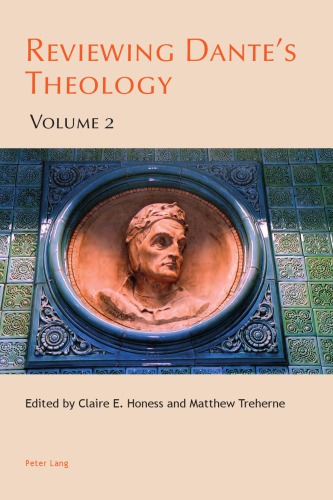

Most ebook files are in PDF format, so you can easily read them using various software such as Foxit Reader or directly on the Google Chrome browser.
Some ebook files are released by publishers in other formats such as .awz, .mobi, .epub, .fb2, etc. You may need to install specific software to read these formats on mobile/PC, such as Calibre.
Please read the tutorial at this link: https://ebookbell.com/faq
We offer FREE conversion to the popular formats you request; however, this may take some time. Therefore, right after payment, please email us, and we will try to provide the service as quickly as possible.
For some exceptional file formats or broken links (if any), please refrain from opening any disputes. Instead, email us first, and we will try to assist within a maximum of 6 hours.
EbookBell Team

5.0
70 reviewsVolume 1 considers some of the key theological influences on Dante. The contributors discuss what 'doctrine' might have meant for Dante and consider the poet's engagement with key theological figures and currents in his time including: Christian Aristotelian and scholastic thought, including that of Thomas Aquinas; Augustine; Plato and Platonic thought; Gregory the Great; and notions of beatific vision. Each essay offers an overview of its topic and opens up new avenues for future study. Together they capture the energy of current research in the field, test the limits of our current knowledge and set the future study of Dante's theology on firm ground.
Volume 2 considers some of the broader social, cultural and intellectual contexts for Dante's theological engagement. The contributors discuss the relationship between theology and poetry as Dante sees and presents it; Dante's thought on the nature of the Church; the ways in which liturgical practice helped shape the poet's work; the links between Dante's political and theological ideas; the importance of preaching in Dante's context; the ways in which the notion of virtue connects theological and ethical thought in Dante's works; and the extent to which Dante's often surprising, groundbreaking work tests medieval notions of orthodoxy. Each essay offers an overview of its topic and opens up new avenues.